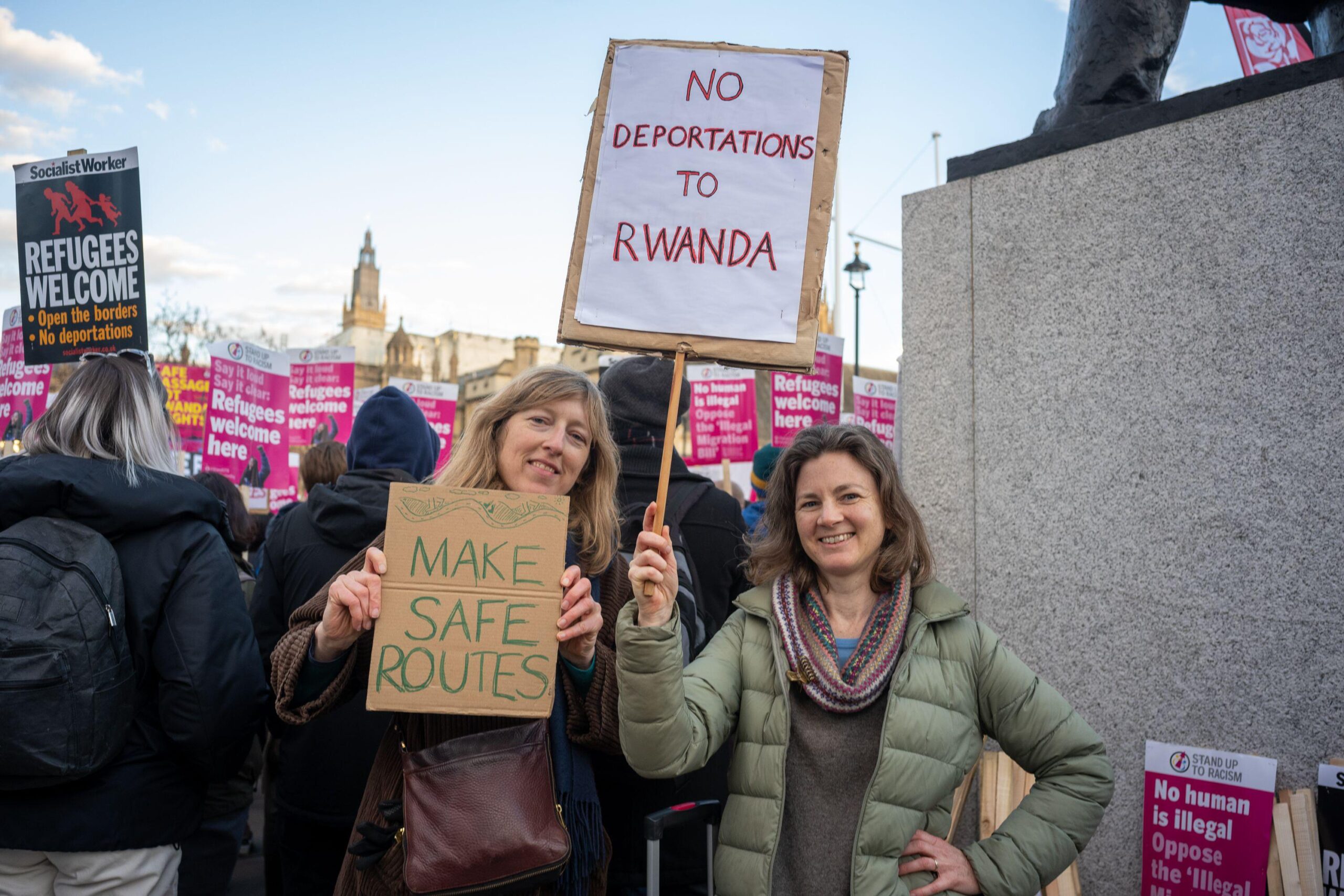 27 March 2023: Protestors against the Rwanda deportation Plan gathered outside the Houses of Parliament. [photo: Aubrey Fagon/Alamy]
27 March 2023: Protestors against the Rwanda deportation Plan gathered outside the Houses of Parliament. [photo: Aubrey Fagon/Alamy]
[This is an excerpt from an article in The Round Table: The Commonwealth Journal of International Affairs.]
In a desperate attempt to shore up its faltering support, the United Kingdom (UK) Conservative Party shifted further to the right during its final months in office. Cheered on by journalists in the right-wing media, attacks against migration (both legal and illegal) took centre stage with the ‘Rwanda Plan’, which sought to deport illegal migrants to the East African country.
Progressive commentators criticised the Rwanda Plan, with some even comparing it to Nazi Germany’s idea to send European Jews to Madagascar in 1940. However, a better comparison, and one that took place much closer to home and more recently, was the British Labour government’s desire to use ‘third countries’ for the growing number of ‘Rhodesian Africans’ who came to Britain in the 1970s seeking opportunities that were not open to them in the segregated state in which they were born. The suitability of these individuals to pursue studies in the UK, and questions regarding the motivations of the institutions granting them places on academic or training courses, was also drawn into question by journalists and politicians demonstrating parallels with contemporary debates regarding international students.
The influx of Black Rhodesian migrants to the UK was the result of policies designed to provide education and training, which would be key to the success of a future democratic state in southern Africa. From 1966, the UK played a leading role as the main financier and provider of scholarships and training bursaries trough the Special Commonwealth Programme of Assistance to Rhodesian Africans. Through this scheme, and other smaller scholarship funds, 299 awards were granted by the British government to Black Rhodesians between 1966 and December 1972.
In July 1974, entry requirements were relaxed for Black Rhodesians travelling to the UK to seek educational opportunities. This resulted in the scholarship and bursary programmes on offer being considerably oversubscribed and meant that Ministry for Overseas Development (ODM) had to reject 311 applications by March 1975. This led to angry scenes as those rejected protested outside ODM headquarters. In response, Minister of Overseas Development Judith Hart intervened and additional funds were found to provide awards to most applicants. This decision, however, compounded the issue as word reached Rhodesia and an additional 1000 individuals travelled to Britain in hope of securing a scholarship or bursary.
In language similar to the previous Conservative Government’s attacks on universities for providing ‘Mickey Mouse’ degrees to secure lucrative international students, British policymakers were concerned that educational providers were accepting applications with ‘inadequate qualifications – including occasionally inadequate knowledge of English’. The issues surrounding the high numbers of Black Rhodesians arriving in the UK was also discussed in the media in much the same vein as contemporary commentary on refugees and asylum seekers. Peter Nieswand, writing in The Guardian, was critical of the ‘increasingly ungrateful’ and ‘demanding’ attitude of Black Rhodesians towards the British government. Brian Silk of The Daily Telegraph contended that most Rhodesian Africans in the UK had ‘become burdens on the welfare state’, while Professor Roland Oliver of the University of London wrote an article in The Times suggesting that it was ‘puzzling’ that the Black Rhodesians in question could afford air travel to the UK while also claiming to be ‘pennyless’.
The ODM held discussions about re-shaping the British Special Programme for the Education of Rhodesian Africans and it was recommended that awards be redesigned to emphasise training in other African countries rather than the UK ‘except when facilities for particular types of training were not available there’. Ironically, a proposal to increase support to training schemes for Rhodesians in neighbouring states such as Zambia had initially been rejected in 1972 as ‘usually British expertise is not involved and there is no benefit to British interests’.
Daniel Feather is a Senior Lecturer in History, Liverpool John Moores University, Liverpool, UK.



